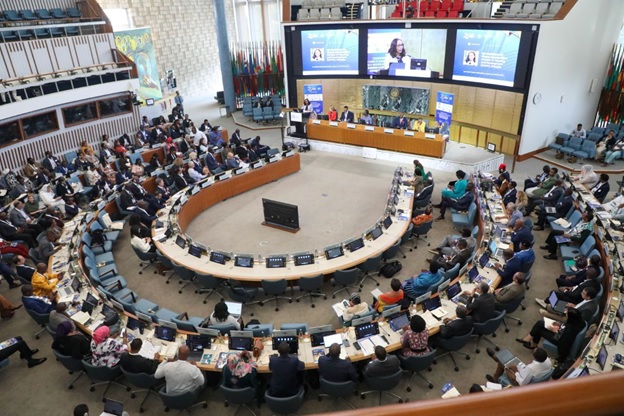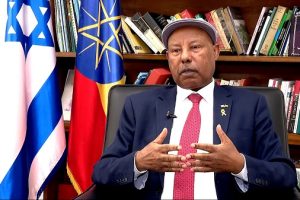
-Advocates locally-driven methodologies to advance Agenda 2063
ADDIS ABABA – The African Evaluation Association (AfrEA) celebrated its 25th anniversary yesterday, reaffirming its commitment to amplifying African voices in the global evaluation landscape and championing methodologies rooted in African contexts.
Held under the theme: “Celebrating 25 Years of Excellence in Africa-Rooted Evaluation: Building a Stronger Future Together,” the event brought together over 300 policymakers, evaluators, and development experts from across the continent.
It was co-hosted by the Ethiopian Evaluation Association (EEvA) and Ethiopia’s Ministry of Planning and Development (MoPD).
Since its founding in 1999, AfrEA has grown from a modest network into a dynamic force, now supporting 40 national evaluation associations (VOPEs) and over 3,000 members. Through its biennial conferences and the African Evaluation Journal, AfrEA has helped reposition Africa as a contributor—not just a consumer—of global evaluation knowledge and standards.
“African-led evaluation must serve Africa’s development agenda,” emphasized AfrEA President Miche Ouedraogo, calling for broader adoption of homegrown approaches supported by digital innovation and contextual relevance.
Ethiopia’s Minister of Planning and Development, Fitsum Assefa (PhD), commended AfrEA’s milestone and highlighted Ethiopia’s efforts to institutionalize evaluation within its national planning system. She noted the development of a national evaluation framework as a key achievement, designed to guide the conduct, use, and dissemination of evaluations across sectors.
“The AfrEA anniversary is not only just a celebration, it is also a moment of reflection and renewed commitment,” she said. “Ethiopia views evaluation not only as a technical necessity but as a democratic imperative ,one that empowers citizens, ensures inclusivity, and enhances service delivery.”
Fitsum further linked robust evaluation systems to the successful implementation of Agenda 2063, the African Union’s long-term development blueprint.
The African Union Commission of Strategic Planning and Delivery Director Botho Kebabonye Bayendi echoed this sentiment, emphasizing the critical role of evaluation in advancing Africa’s development aspirations.
“A truly African-owned evaluation system must help us diagnose implementation bottlenecks, validate what works in our context, redirect resources to impactful initiatives, and ensure that no community is left behind,” she stated.
AfrEA President Miche concluded by reaffirming the association’s commitment to strengthening evaluation culture in Africa through capacity-building, knowledge-sharing, and evidence-based policymaking.
As AfrEA celebrates its silver jubilee, its growing influence underscores the importance of homegrown evaluation practices in shaping more inclusive, accountable, and effective development across Africa.
BY HAILE DEMEKE
THE ETHIOPIAN HERALD TUESDAY 17 JUNE 2025




